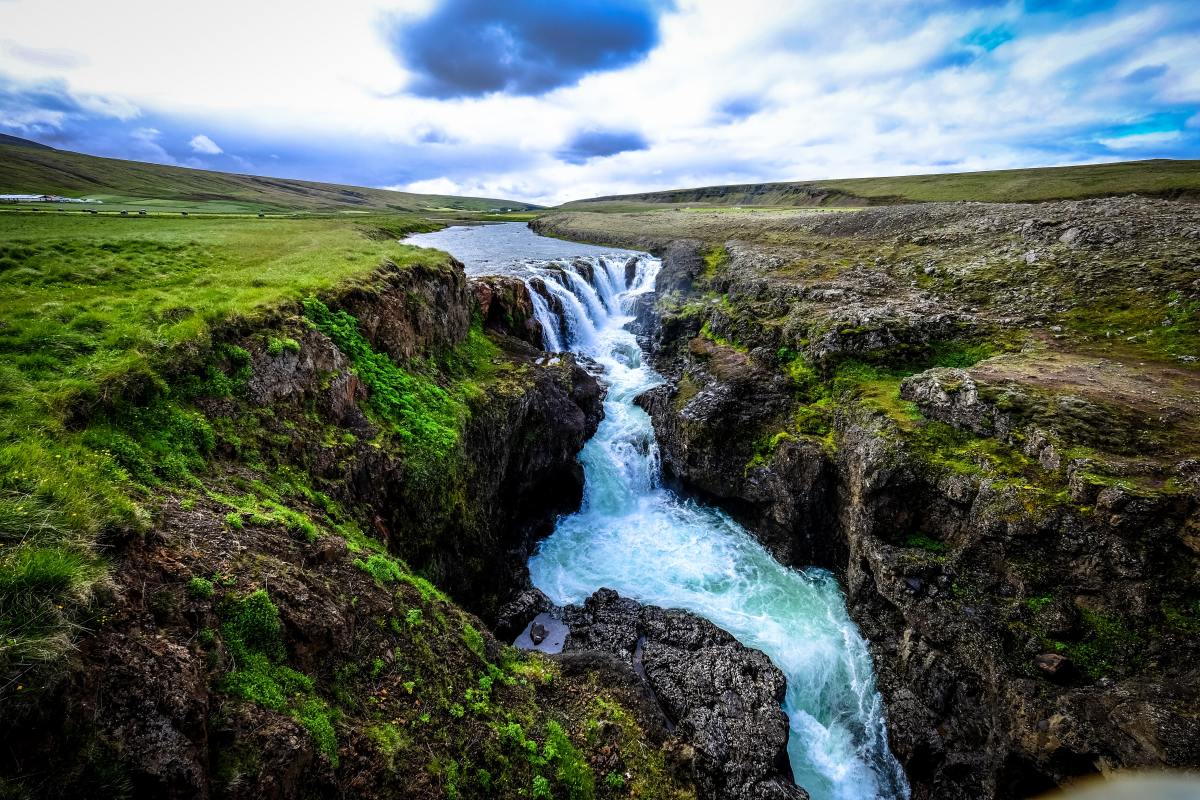As I was praying this morning, seeking to be filled with a greater degree of God’s love, the imagery of running water came to mind. Nephi learned that God’s love is comparable to a “fountain of living waters.” It ever flows out from Him, and down through the rest of creation to the degree that we will receive it.
Being born into a fallen state, cut off from God, we develop a false sense of self–one that is somehow independent from God. Last week I was sitting in a Waffle House (which tends to bring in some interesting characters) and it dawned on me like never before: we’re all just different variations of cut off from God. We’ve created so much of our sense of identity in a vacuum. The unique faults, quirks, and weaknesses of all come as a result of not being connected to the One. “That they all may be one; as thou, Father, art in me, and I in thee, that they also may be one in us” (John 17:21).
We are intended to be agents who extend the reach of God’s love. As it flows to us, it ought to flow through us. The way we open ourselves up to both receive and give is in the total surrender of what we call “self.” It is a concept we’ve only developed in being cut off from the source of life, and holding onto it—trying to be an independent entity—keeps us from properly aligning ourselves to the stream of God’s love. It is only in this total surrender that we actually find and become our true selves—that version of us through which truth flows. “Then said Jesus unto his disciples, If any man will come after me, let him deny himself, and take up his cross, and follow me. For whosoever will save his life shall lose it: and whosoever will lose his life for my sake shall find it” (Matthew 16:24-25).
Ego—the false self we try so hard to hold on to–impedes the flow of this love. What we find is that as we surrender this self up to God, love flows through us as a natural consequence. It’s the surrender of this self—self-identity, self-will, self-preservation—that brings us into a justified state. It’s the continual surrender of this self, as it’s revealed to us in greater degrees, that brings about our sanctification. We must be consumed in this love.
“But charity is the pure love of Christ, and it endureth forever; and whoso is found possessed of it at the last day, it shall be well with him. Wherefore, my beloved brethren, pray unto the Father with all the energy of heart, that ye may be filled with this love, which he hath bestowed upon all who are true followers of his Son, Jesus Christ; that ye may become the sons of God; that when he shall appear we shall be like him, for we shall see him as he is; that we may have this hope; that we may be purified even as he is pure” (Moroni 7:47-48)
We can only be like Him to the degree that we surrender the self and allow His love to “possess” us. His purpose must become our purpose; His identity must become our identity. It is the only identity whereby we can be saved: “There is no other name given whereby salvation cometh; therefore, I would that ye should take upon you the name of Christ, all you that have entered into the covenant with God that ye should be obedient unto the end of your lives. And it shall come to pass that whosoever doeth this shall be found at the right hand of God, for he shall know the name by which he is called; for he shall be called by the name of Christ” (Mosiah 5:8-9).

